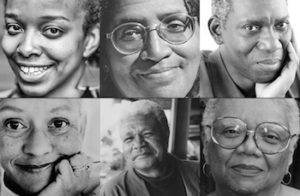
The Registry celebrates Black poetry on this date (Black Poetry Day) from c 1800.
Through their collective culture and work, white culture has forced Black poets to question themselves. This constant negation of what it means to be human, American, and Black continues a definitive quest for identity. African diaspora poetry comes from the continent and represents a blend of the public and the private in the journey toward voice and freedom.
The first Black poets in the Americas turned to British writers for role models: Alexander Pope, Samuel Johnson, Jonathan Swift, and others. Black or white poetry written at this time lacked personal psychology, which was an essential part of the American tradition. Ralph Emerson’s famous works did not appear until 1837.
Black poets before the American Civil War included Jupiter Hammon, George Moses Horton, George Boyer Vashon, James Whitfield, and Frances E. W. Harper. They and others explored the questions of slavery and freedom, drawing from myths and stories. Their poetry had an unusual and unique interest because it was created under oppression, social isolation, educational deprivation, and poverty.
Frederick Douglass’ narrative showed the quest for self-discovery, yet did not come fully until Paul Laurence Dunbar, James Weldon Johnson, Anne Spencer, Georgia Douglas Johnson, and William Stanley Braithwaite had their work published. These poets mirrored a changed national aesthetic. They also reflect a more gnarled and complex social situation that developed as hopes of freedom evolved to Reconstruction and soon became deterred by Jim Crow.
These words of Dunbar represent a desire for a freer and more abundant life than African Americans could have at the time: “I know why the caged bird sings, ah-me. When his wing is bruised and his bosom sore, When he beats his bars, and he would be free; It is not a carol of joy or glee, But a prayer that he sends from his heart's deep core.”
The Harlem Renaissance of the 20th century symbolized a turning point in the tradition of Black poetry. It was in this milieu that the first collections of Black American poetry were created.
Experimentation was encouraged, and even more creative offerings poured out. Jean Toomer, Langston Hughes, Gwen Brooks, and Countee Cullen’s works brought out parts of the everyday lives of African Americans that had seldom been dealt with. Robert Hayden, born just after these masters of the Harlem Renaissance, comes to mind. With his excellent English language skills, Hayden was dedicated to exploring the soul and race that influenced all Black poets.
Examples of this style are found in his poems “A Letter from Phyllis Wheatley and Paul Laurence Dunbar.” The African American tradition of poetic verse from after World War II to the present day has split into several different, and at times opposing, elements. Poets such as Jay Wright, Rita Dove, and Michael S. Harper maintain themselves and relate to the past. Still, more involved and politically relevant poems came from nationalist writers such as Amiri Baraka, Sonia Sanchez, Haki Madhubuti, and others.
Sterling A. Brown gave Black poetry its greatest examples. An accomplished literary critic, a student of African American art and folklore, and an expert in applying other race and class struggles to the Black experience, Brown, too, was a brilliant poet.
He tailored African American emotions and dialect with the English language to spotlight rural southern Blacks' lives and call attention to its greatness. The unfortunate dismissal of Brown by white publishing establishments, and even some Black critics, goes to the heart of the problem of Black literary tradition. Sterling Brown’s life’s work was to hold up the face of Black America and make us ask, “What is hidden behind you?” Because language plays such an essential role in the life of America, Black poets have the added complexity of expressing themselves so other cultures can entirely understand them.
From the lie of the founding documents: “We hold these truths to be self-evident, that all men are created equal,” on the one hand, to “three-fifths of all other persons” on the other, what Americans have wanted to envision and say does not always come true. African Americans have been forced to live this darker way of life, and they have several cultural expressions, most notably the Blues, to help them carry on and endure. With the jazz age of the 1920s, to the beat of the 1950s, from the politically torn 1960s and 1970s to the turbulent youth culture of the turn of the 21st century, America’s mainstream turns to Black culture to voice its heartache, hopes, and ambitions.
In the 21st Century, from Elizabeth Alexander to Patricia Smith to Nikki Giovanni and Amanda Gorman, black poets have witnessed this reality, mournful and celebrating what poet Cornelius Eady has termed “this/Rent party above the/slaughter-house.” Kidnapped from a past, we have already forgotten and grown through an often anonymous world to an undefined future, African American verse remains. Hundreds of Black poets stay the course, the true theme of American literature.
Voices Narratives.Literature.AAR
The Academy of American Poets
75 Maiden Lane, Suite 901
New York, NY 10038
Black Spirits, A festival of new Black Poets in America
Edited by Woodie King
Copyright 1972
Random House, New York
ISBN 0-394-47620-4
Trouble the Water: 250 Years of African American Poetry.
Edited and with an Introduction by Jerry W. Ward, Jr. A Mentor Book
Copyright 1997
Jerry W. Ward, Jr
ISBN 0-451-62864-0